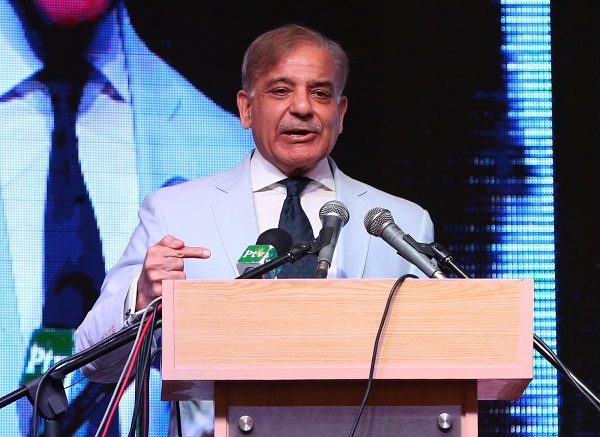Islamabad, (Samajweekly) Pakistan Prime Minister Imran Khan, with his latest address to the nation, seems to be finally certain about the “bitter reality” that his government is in power for a couple more days and his premiership will be “toppled” through the no-confidence vote, scheduled to be tabled in Parliament on April 3.
With Khan losing majority in the National Assembly, and the Opposition alliance claiming over 172 out of 342 votes, the next Prime Minister is geared up to lead the country.
Shehbaz Sharif, the former Chief Minister of Punjab province, co-chairperson of political party Pakistan Muslim League – Nawaz (PML-N) and leader of the Opposition in the National Assembly, has been nominated to become the Prime Minister, after the ouster of Khan.
Shehbaz is the younger brother of former Prime Minister Nawaz Sharif, who was ousted off his premiership on charges of assets beyond means by National Accountability Bureau (NAB) and later by the Supreme Court of Pakistan (SCP), is currently in London and is being accused by Imran Khan of orchestrating, planning and facilitating the no-confidence motion against him by hatching a conspiracy in partnership and support of the US and other western countries.
Nawaz Sharif remained Prime Minister at least three times, but failed to complete his five-year term every time.
Shehbaz, being member of the wealthy and well-known Sharif family, is also accused of being part of the family dynasty that leads their political party PML-N and is “centred” for people within the family only.
However, Shehbaz, for many, comes with a different set of capabilities and credentials, which many think, may be a good change for the country.
He comes with a strong political track record of being the longest serving Chief Minister of the Punjab province. Shehbaz has been credited in the past for being the “best” Chief Minister, in comparison to other provinces as Punjab stands as the most developed and empowered province in Pakistan.
In 1988, Shehbaz was elected to the Punjab provincial Assembly. Later, he became Member National Assembly (MNA) in 1990.
But with the then Army Chief Pervez Musharraf toppling the then Prime Minister Nawaz Sharif’s government in 1999, Shehbaz along with the Sharif family, spent years of exile in Saudi Arabia before returning to Pakistan in 2007.
Shehbaz was re-elected as Punjab Chief Minister as his party PML-N formed the government in the province. Shehbaz became president of PML-N after his brother, Nawaz Sharif was disqualified by the Pakistani courts.
He was Chief Minister of Punjab for the third time in 2013 and served his full tenure till 2018, when PML-N lost the general elections.
It is pertinent to note that Shehbaz, like other members of the Sharif family, are facing serious charges of corruption and money-laundering by the country’s National Accountability Bureau (NAB). He was arrested from the Lahore High Court (LHC) in 2020 on the same charges and was put behind bars.
But after being bailed out, Shehbaz today stands as the next in line to become the country’s Prime Minister. Many say, he played a major role in uniting the Opposition parties and forming the Pakistan Democratic Movement (PDM).
It is also believed that unlike Khan, who “ignored and negated” the Opposition and did not even “desired” to talk with them, Shehbaz’s approach will be more inclusive being more of a statesman, whose efforts may be focused on running a coalition government with better political understanding and with mutual agreements, to ensure having “better and smooth” political and democratic consistency in Parliament and legislations.










